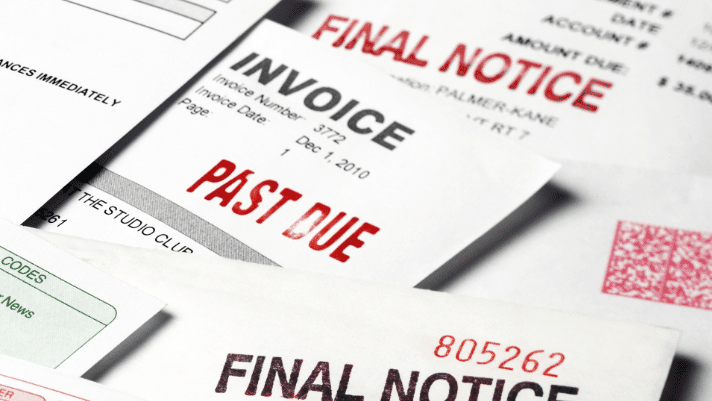In Arkansas, when served with a Summons for debt collection, you have 30 days to respond with a written Answer. Fortunately, you are not required to pay a fee to do so. You can utilize ZumaZip to efficiently draft and file your Answer in a matter of minutes.
Navigating debt collection can indeed be challenging, especially when faced with a lawsuit from a debt collector. However, we’re here to alleviate some of that burden and empower you to effectively address the situation. In this article, we’ll provide comprehensive guidance on how to respond to a debt collection lawsuit in Arkansas. We’ll delve into state-specific regulations, deadlines, associated fees, and requisite forms to equip you with the knowledge needed to handle the situation adeptly. So, without further ado, let’s delve into the details.
Table of Contents
- Deadlines
- Answer Forms
- Answer Filing Fees
- Steps to Respond to a debt collection case in Arkansas
- What is ZumaZip?
- Statute of Limitations in Arkansas
- Arkansas Legal Aid Organizations
- Key Takeaways
Respond to a Summons
Arkansas deadline to Answer a debt collection Summons
Arkansas civil procedure law outlines the deadline you have to respond to a Summons and Complaint. Ark. Dist. Ct. R. 6(b) states:
“Time for Filing Answer or Reply. A defendant shall file an answer with the clerk of the court within thirty (30) days after the service of the complaint upon the defendant. An answer to a cross-claim and a reply to a counterclaim shall be filed with the clerk of the court within 30 days of the date that the pleading asserting the claim is served. A copy of an answer or reply shall also be served on the opposing party or parties in accordance with Rule 5(b) of the Rules of Civil Procedure.”
In Arkansas, upon receiving a Summons for debt collection, it’s crucial to note that you have a strict deadline of 30 days to respond. Failure to respond within this timeframe can result in an automatic loss of your case through default judgment, potentially leading to additional fees such as interest and attorney’s fees. This underscores the importance of timely action.
In most Arkansas courts, the filing date of your Answer is determined by the filemark, which is the date the court receives and processes your document. To ensure compliance and timely response, it’s advisable to initiate the process of drafting and filing your response as soon as you receive notification of the lawsuit. Utilizing an Answer form can expedite this process significantly.
Arkansas Answer to Summons forms
To effectively respond to a debt collection Summons in Arkansas, navigating the plethora of required forms can be daunting for someone without legal expertise. ZumaZip offers a solution to this challenge by providing multiple options to assist you in completing the appropriate form accurately.
By utilizing ZumaZip’s Answer form, you can efficiently address the debt collection lawsuit in Arkansas. Furthermore, Arkansas offers an online program designed to aid individuals in creating an Arkansas Online Answer Form. While this program is intended to assist with legal aid forms specific to Arkansas, its usability may be hindered by outdated graphics and impersonal imagery.
ZumaZip simplifies the process by offering a user-friendly platform for responding to your debt collection case. In just 15 minutes, you can generate your response using our straightforward service. Moreover, our team will ensure that your response is reviewed by an attorney and filed promptly on your behalf, providing you with peace of mind during this challenging process.
Arkansas courts do not charge an Answer filing fee
In Arkansas, it’s noteworthy that most courts do not impose a filing fee for submitting your Answer document. While this may appear commonplace, it’s actually a significant benefit, considering that many state courts levy substantial filing fees. Therefore, you can consider yourself fortunate in this regard.
However, it’s essential to recognize that there might still be filing fees associated with submitting a counterclaim, motion, or other types of court documents in your case. Each court typically maintains a fee schedule detailing these charges. To ascertain the exact amount you may need to pay for such filings, it’s advisable to consult with your court clerk for clarification.
Follow these steps to respond to a debt collection case in Arkansas
Responding to a debt collection case in Arkansas without hiring an attorney can save you time, money, and stress. Here’s a step-by-step guide to help you navigate the process:
- Prepare Your Answer Document: Your first task is to draft a written Answer document in response to the Summons. According to Ark. Dist. Ct. R. 6(a), your Answer must include:
- Reasons for denying the relief sought by the plaintiff, along with any affirmative defenses and their factual bases.
- Any affirmative relief you seek, such as counterclaims or set-offs, including their factual bases and the names/addresses of relevant parties.
- The address of either yourself or your attorney.
- Complete the Answer Form: Utilize a comprehensive Answer form like ZumaZip’s, which includes all the necessary requirements outlined by Arkansas laws. This online form can be completed in just 15 minutes.
- Follow the Three Steps for Response:
- Answer Each Allegation: Address each allegation listed in the Complaint against you.
- Assert Affirmative Defenses: Clearly state any affirmative defenses you have.
- File and Serve: File the completed Answer with the court and ensure a copy is sent to the opposing attorney.
By adhering to these steps, you align with the Answer requirements specified in Arkansas laws. This breakdown should provide clarity and guidance as you navigate your response to the debt collection lawsuit.
1. Answer each allegation listed in the Complaint
To effectively respond to the Complaint in a debt collection case in Arkansas, it’s essential to address each allegation outlined in the document. Here’s how to approach this step:
- Review the Complaint: Carefully examine the Complaint document provided by the opposing party. This document will detail the specific claims or allegations they are asserting against you.
- Craft Your Responses: In your Answer document, you must provide a response to each numbered paragraph in the Complaint. Your responses should fall into one of the following categories:
- Admit: Acknowledge the truthfulness of the allegation.
- Deny: Contest the allegation and demand proof from the opposing party.
- Deny Due to Lack of Knowledge: State that you lack the information or knowledge to either admit or deny the allegation.
- Consider a General Denial: Many legal professionals recommend issuing a “general denial” where you deny each paragraph in the Complaint, including those pertaining to your identity. By denying each allegation, you require the plaintiff to provide evidence for every claim, potentially increasing the burden of proof on their end.
By responding to each allegation in a strategic and thorough manner, you assert your position and ensure that the plaintiff bears the responsibility of proving their case.
Let’s consider an example.
In the example scenario, Frank, who is facing a lawsuit from debt collectors in Arkansas, chooses to utilize ZumaZip’s services to prepare and submit his response. In his Answer document, Frank opts to deny all the allegations presented in the Complaint filed against him.
By issuing a general denial, Frank contests each numbered paragraph in the Complaint, effectively placing the burden of proof on the debt collectors. This approach aligns with the recommendation of many legal professionals to deny all allegations, including those pertaining to identity, to potentially increase the plaintiff’s evidentiary burden and strengthen Frank’s position in the case.
2. Assert your affirmative defenses
Asserting affirmative defenses in response to a debt collection lawsuit in Arkansas involves presenting valid legal arguments to support your position. Here’s how to effectively assert affirmative defenses:
- Review Available Defenses: Familiarize yourself with common affirmative defenses applicable to debt collection cases. These may include:
- Expiration of the statute of limitations.
- Harassment by the debt collector.
- Breach of contract by the creditor.
- Active duty military status.
- Disputing ownership of the account with the debt.
- Cancellation of the contract, relieving you of any obligation.
- Payment or forgiveness of the debt.
- Partial payment made towards the debt.
- Lack of informed consent as a co-signer.
- Select Relevant Defenses: Choose the affirmative defenses that apply to your specific situation. Consider factors such as the nature of the debt, interactions with the creditor or debt collector, and any contractual agreements involved.
- Incorporate Defenses Into Your Answer: Add the selected affirmative defenses to your Answer document beneath your responses to the allegations in the Complaint. Ensure clarity and specificity in articulating each defense.
ZumaZip helps you make the right affirmative defense the right way.
By asserting affirmative defenses effectively, you strengthen your legal position and provide additional grounds for defending against the debt collection lawsuit. Utilizing a service like ZumaZip can streamline this process and ensure that your defenses are properly articulated in your response.
Let’s take a look at another example.
In this example, Hillary faces a credit card debt lawsuit in Arkansas and discovers that the debt account has been inactive for nearly six years, surpassing the state’s statute of limitations for credit card debt, which is five years. Recognizing this as a valid affirmative defense, Hillary asserts it in her Answer document using ZumaZip’s services to ensure accuracy and compliance with legal requirements. By filing her Answer before the deadline, Hillary effectively communicates her defense to the debt collectors suing her.
Upon learning about the expiration of the statute of limitations, the debt collectors opt to dismiss the case. This outcome underscores the importance of understanding and asserting affirmative defenses strategically, as they can lead to a favorable resolution of the legal matter. Hillary’s proactive approach in utilizing the statute of limitations as a defense ultimately results in the dismissal of the lawsuit against her.
3. File the Answer with the court, and send a copy to the opposing attorney
Filing your Answer with the court and ensuring the opposing attorney receives a copy is a crucial step in responding to a debt collection lawsuit. While the process can be complex and daunting, ZumaZip offers assistance to streamline this task. Here’s a breakdown of what you need to do:
- Print Two Copies of Your Answer: Ensure you have printed two copies of your completed Answer document.
- Mail One Copy to the Court: Locate the mailing address of the court where the lawsuit was filed. This information may not be readily available, so it’s advisable to contact the court directly for guidance on where to send your Answer.
- Mail the Other Copy to the Plaintiff’s Attorney: The address of the plaintiff’s attorney should be provided in the Summons and Complaint documents you received. Use this information to mail a copy of your Answer to the attorney representing the opposing party.
By following these steps and ensuring both the court and the opposing attorney receive a copy of your Answer, you fulfill your obligation to respond to the lawsuit within the specified timeframe. ZumaZip can assist with this process, simplifying the filing procedure and helping you navigate the complexities involved.
ZumaZip can file your Answer for you in all 50 states.
What is ZumaZip?
ZumaZip is a convenient online platform designed to assist individuals in dealing with debt collectors effectively. With ZumaZip, you can respond to debt lawsuits, communicate with collectors through letters, and even negotiate debt settlements.
The Answer service provided by ZumaZip is a user-friendly web application that guides you through the process of completing your Answer document step by step. By asking pertinent questions, ZumaZip ensures all necessary information is included in your response. Additionally, once you have completed your Answer, ZumaZip arranges for an attorney to review your document for accuracy before filing it on your behalf. This service streamlines the response process, making it easier for individuals to navigate the complexities of debt collection litigation.
The statute of limitations on debt in Arkansas could be your best defense
The statute of limitations is essentially the expiration date on your debt. It is a law that says for how many years a collector can collect on the debt by suing you. Once the deadline has passed, Once the deadline has passed, they no longer have legal ground to sue you for it.
That doesn’t mean that creditors and debt collectors won’t sue you for a debt that is past the statute of limitations. It’s your responsibility to know the statute for your debt and to bring it up in court as a defense in order to get your case dismissed. The judge will not check it for you.
The table below outlines the statute of limitations on different types of debt in Arkansas:
| Debt Type | Deadline |
|---|---|
| Medical | 2 years |
| Oral Contract | 3 years |
| Credit Card | 5 years |
| Student Loan | 5 years |
| Auto Loan | 5 years |
| Personal Loan | 5 years |
| Mortgage | 5 years |
| Judgment | 10 years |
| Source: Ark. Code § 16-56-105, 106, 111, and 114 |
Now, let’s break down these laws in detail.
Each state has a unique timeline for the statute of limitations on debt. Arkansas law outlines the statute of limitations on debt for the state of Arkansas. Below, we’ve listed the specific laws regarding Arkansas statute of limitations.
According to Ark. Code § 16-56-106:
“(a) No action shall be brought to recover charges for medical services performed or provided prior to April 1, 1985, by a physician or other medical service provider after the expiration of a period of eighteen (18) months from the date the services were performed or provided.
(b) No action shall be brought to recover charges for medical services performed or provided after March 31, 1985, by a physician or other medical service provider after the expiration of a period of two (2) years from the date the services were performed or provided or from the date of the most recent partial payment for the services, whichever is later.”
In other words, the statute of limitations on medical debt is two years in Arkansas. So, medical providers only have two years from the date of service to sue for an unpaid service, otherwise they won’t have any legal standing in court.
AR Code § 16-56-105 states:
“The following actions shall be commenced within three (3) years after the cause of action accrues:
(1) All actions founded upon any contract, obligation, or liability not under seal and not in writing, excepting such as are brought upon the judgment or decree of some court of record of the United States or of this or some other state;
(2) All actions for arrearages of rent not reserved by some instrument in writing, under seal;
(3) All actions founded on any contract or liability, expressed or implied.”
This is a fancy way of saying that all oral contracts, rent, and expressed or implied contracts have a statute of limitations of three years. In other words, you cannot be sued for any of these types of contracts if there has been no activity on the account for more than three years.
AR Code § 16-56-111 states:
“Actions to enforce written obligations, duties, or rights, except those to which § 4-4-111 is applicable, shall be commenced within five (5) years after the cause of action shall accrue.”
Similarly, this law means that any written contracts have a statute of limitations of five years. So, if you have a written contract and you have taken no action on your account associated with that contract for more than five years, the creditor has no legal grounds to sue you.
So, if you had a credit card debt, and the last time you made a payment towards the debt was six years ago, and the debt collector tries to sue you for the debt, then the statute of limitations has expired and you need to bring that up as an affirmative defense.
Arkansas legal aid organizations can help you
Each state has at least one government-funded organization that can provide free legal help. Arkansas has a couple. You can find out more about their services, including Arkansas legal services forms and Arkansas legal aid forms, by contacting them using the following information:
Legal Aid of Arkansas, Inc.
714 South Main Street
Jonesboro, AR 72401
(800) 952-9243
www.arlegalservices.org
Center for Arkansas Legal Services
1300 W. 6th Street
Little Rock, AR 72201
(800) 950-5817
www.arlegalservices.org
Arkansas court locations
Sometimes the location of your court isn’t clear from the Summons. So we’ve linked to a list of Arkansas state courts here. This information should be helpful in finding the location of the specific Arkansas court forms for the court in which your case is filed. Use this Arkansas court directory to find your courthouse and court clerk’s phone number.
Key Takeaways
Congratulations on reaching the end of the article! Here are some key takeaways for responding to a debt collection lawsuit in Arkansas:
- Response Deadline: You have 30 days to respond to a debt collection lawsuit in Arkansas.
- Use Answer Form: Utilize an Answer form to respond to your lawsuit quickly and efficiently.
- No Filing Fee: Arkansas courts typically do not charge a filing fee for submitting your Answer.
- Focus of Answer: Your Answer document should address the allegations in the Complaint and assert any affirmative defenses you may have.
- Filing Process: File your Answer with the court and send a copy to the opposing attorney.
- ZumaZip Assistance: Consider using ZumaZip to draft and file your Answer in Arkansas, simplifying the process and ensuring accuracy.
Best of luck with your response to the debt collection lawsuit!
What is ZumaZip?
ZumaZip is a convenient solution designed to streamline your response to a debt collection lawsuit. Here’s a breakdown of what you can expect when you use ZumaZip:
Firstly, you’ll access our user-friendly web application, which guides you through the process step by step. You’ll be prompted to answer a series of questions related to your specific situation. Once you’ve completed the questionnaire, you have the option to either print out the finalized forms and mail them to the appropriate courts yourself, or you can opt to utilize ZumaZip’s services to file them on your behalf. Additionally, if you choose this option, an attorney will review your document for added peace of mind.
If you’re seeking guidance on how to effectively respond to a debt collection lawsuit, ZumaZip can provide the assistance you need. Feel free to explore our FAQs for more information on what ZumaZip has to offer.
What if I haven’t been sued yet?
If you’ve only received a collections notice, but not a lawsuit, the best way to respond is with a Debt Validation Letter. When a debt collector contacts you in any way, whether it’s by phone or mail, you can respond by formally requesting a debt validation with a Debt Validation Letter . This letter notifies the collector that you dispute the debt and forces them to provide proof you owe the debt. They can’t call you or continue collecting until they provide validation of the debt. This flowchart shows how you can use a Debt Validation Letter to win.
Get started with a Debt Validation Letter here.
How to Answer a Summons for debt collection in all 50 states
Here’s a list of guides on how to respond to a debt collection lawsuit in each state:
- Alabama
- Alaska
- Arizona
- Arkansas
- California
- Colorado
- Connecticut
- Delaware
- Florida
- Georgia
- Hawaii
- Idaho
- Illinois
- Indiana
- Iowa
- Kansas
- Kentucky
- Louisiana
- Maine
- Maryland
- Massachusetts
- Michigan
- Minnesota
- Mississippi
- Missouri
- Montana
- Nebraska
- Nevada
- New Hampshire
- New Jersey
- New Mexico
- New York
- North Carolina
- North Dakota
- Ohio
- Oklahoma
- Oregon
- Pennsylvania
- Rhode Island
- South Carolina
- South Dakota
- Tennessee
- Texas
- Utah
- Vermont; Vermont (Small Claims court)
- Virginia
- Washington
- West Virginia
- Wisconsin
- Wyoming
Guides on how to beat every debt collector
Hey there! Facing off against a debt collector can feel like a daunting challenge, but fear not! We’re here to help you navigate through it all with our handy guides designed to assist you in beating every debt collector you encounter. Whether you’re facing a new lawsuit or dealing with a persistent collector, we’ve got your back. Stay positive, stay informed, and let’s tackle this together!
- Absolute Resolutions Investments LLC
- Accredited Collection Services
- Alliance One
- Amcol Clmbia
- American Recovery Service
- Asset Acceptance LLC
- Asset Recovery Solutions
- Associated Credit Services
- Autovest LLC
- Cach LLC
- Cavalry SPV I LLC
- Cerastes LLC
- Colinfobur
- Covington Credit
- Crown Asset Management
- CTC Debt Collector
- Cypress Financial Recoveries
- Delanor Kemper & Associates
- Eagle Loan of Ohio
- Educap
- Estate Information Services
- FIA Card Services
- Forster & Garbus
- Freshview Solutions
- Fulton Friedman & Gullace LLP
- Harvest Credit Management
- Howard Lee Schiff
- Hudson & Keyse LLC
- Integras Capital Recovery LLC
- Javitch Block
- Jefferson Capital Systems LLC
- LVNV Funding
- Mannbracken
- Mariner Finance
- Medicredit
- Michael J Adams PC
- Michael J Scott
- Midland Funding LLC
- Mullooly, Jeffrey, Rooney & Flynn
- Mountain Land Collections
- MRS Associates
- National Collegiate Trust
- Nationstar Foreclosure
- Northstar Capital Acquisition
- NCEP LLC
- NRC Collection Agency
- OneMain Financial
- Palisades Collection LLC
- Pallida LLC
- Paragon Revenue Group
- Pinnacle Collections Agency
- PMAB LLC
- Portfolio Recovery Associates
- Provest Law
- PYOD LLC
- Reunion Student Loan Finance Corporation
- Revenue Group
- Regents and Associates
- RSIEH
- Salander Enterprises LLC
- Second Round Sub LLC
- Security Credit Services
- Sherman Financial Group
- Suttell and Hammer
- T-Mobile
- Transworld Systems
- Tulsa Teachers Credit Union
- UCB Collection
- Velo Law Office
- Velocity Investments
- Waypoint Resource Group
- Weinberg and Associates
- Wolpoff & Abramson
Settle your medical debt
Having a health challenge is stressful, but dealing medical debt on top of it is overwhelming. Here are some resources on how to manage medical debt.
- Am I Responsible for My Spouse’s Medical Debt?
- Do I Need a Lawyer for Medical Bills?
- Do I Need a Lawyer to Fight Medical Bill Debt?
- Does Bankruptcy Clear Medical Debt?
- How Much Do Collection Agencies Pay for Medical Debt?
- How to Find Medical Debt Forgiveness Programs
- Is There a Statute of Limitations on Medical Bills?
- Medical Debt Statute of Limitations by State
- Summoned to Court for Medical Bills — What Do I Do?
- Summoned to Court for Medical Bills? What to Do Next
Stop calls from Debt Collectors
Do you keep getting calls from an unknown number, only to realize that it’s a debt collector on the other line? If you’ve been called by any of the following numbers, chances are you have collectors coming after you, and we’ll tell you how to stop them.

































